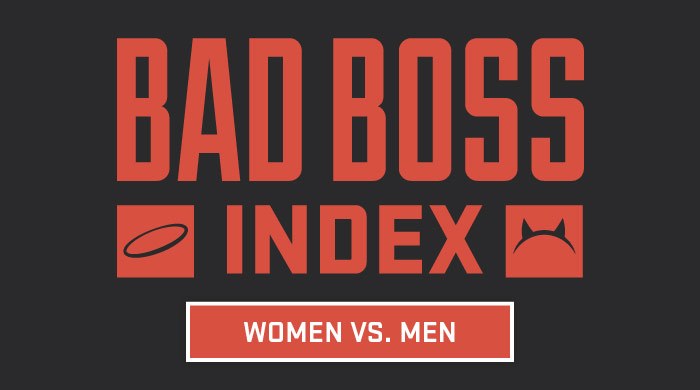Managing Millennials in the Workplace [Part 2]
The first article of this series (if you missed it, check it out here) explained why effectively managing millennials really just means effectively managing all of your employees, regardless of generation.
A big part of being an effective manager is providing employees with the things they need to be satisfied and engaged at work—like fair compensation and frequent feedback. However, another big part of effective management is avoiding the behaviors and practices that drive people away. Below I’ve outlined the most common don’ts when it comes to managing millennial talent—and everyone else.
What Drives Millennials Away
A poor working environment may have been excusable in the past, as previous generations generally inherited a more stoic perspective of work from their parents and grandparents. The common opinion was that you had to do your job and earn a living whether you enjoyed it or not so that you could provide the best possible chance for your children to surpass you. As a result, employees were generally willing to tolerate negative working conditions for much longer than employees are today.
More and more, employees now view their work-life balance as a melting pot, with all the ingredients blending together. They’ve been taught—correctly, as it turns out—that if they aren’t happy in their work, they won’t be as happy in their lives, and vice-versa. It’s important for your organization to recognize this new perception and build a positive employee experience. Otherwise, you may have trouble recruiting and retaining top millennial talent down the road.
Poor Management
According to our very own Bad Boss Index, 44 percent of people who have quit a job said their manager was the main reason they wanted to leave. In a similar vein, Gallup found that managers account for at least 70 percent of the variance in employee engagement scores across business units.
As mentioned in the previous article, managers act as a window for their employees, helping to frame their entire work experience. There’s an old story of a woman who believed her neighbor didn’t know how to properly wash the laundry because the sheets and clothes always looked grungy while hanging on the line to dry. However, she eventually finds out that the laundry had always been perfectly clean—but that her window was dirty.
Poor management can be a dirty window for the people in your organization, especially millennials who may not have a lot of career experience. It can taint an employee’s entire outlook and experience even if the rest of your organization is “clean laundry.”

Here are the bad boss behaviors that employees rated as the most egregious:
- Taking credit for employee work
- Doesn’t appear to trust or empower employees
- Doesn’t appear to care about overworking employees
- Doesn’t appear to advocate for employees when it comes to compensation
- Hires or promotes the wrong people
Download the Bad Boss Index here.
Toxic Relationships
Effectively managing millennials in the workplace hinges on individual team managers; however, peers and coworkers can have a huge impact as well. Perhaps more than previous generations, employees of the millennial generation view work as part of their larger social life and coworkers as part of their social circle. So when those relationships aren’t available at work—or worse, when there are negative relationships at work—it can be a serious turn-off for millennials.
Toxic employees can be especially damaging when it comes to your company culture and the employee experience. A study from Harvard Business School found that toxic employees create a terrible disruption for their peers:
- 80 percent of employees lost work time worrying about the offending employee’s behavior
- 78 percent said their commitment to the organization declined in the face of toxic behavior
- 66 percent said their performance declined as a result of working with a toxic employee
- 63 percent lost work time as a result of trying to avoid the offender

Working alongside a toxic employee also increases an individual’s chances of becoming toxic themselves, which is why it’s so important to address the problem as soon as possible. Ignoring negative behavior and hoping it will go away on its own is like handing a toddler a cup of finger paint, leaving him alone for an hour, and hoping the house stays clean. The longer you wait, the more pink handprints you’ll be scrubbing off the walls later.
Negative Company Culture
Recruiting and retaining millennials takes more than just a good manager and friendly team members, though. It all comes down to your company culture. A positive company culture built on values that people in the organization truly embrace can help you build up your employer brand and attract millennials. And after the hiring process, it’s that positive culture that can help you retain millennial talent as well.
On the other hand, a negative company culture can drive candidates and employees away faster than you can say “turnover.” According to one study, the chance that employees at an organization with a healthy culture will leave is about 14 percent while the likelihood of turnover among those employees at an organization with a poor culture jumps to 48 percent. Here are a few red flags that may indicate an unhealthy company culture:
- Lack of communication
- Lack of productivity or efficiency
- Interpersonal conflicts
- Low compensation
- Poor work-life balance
- High turnover

Conclusion
The best way to improve how you work with your millennial employees is to communicate. Ask them what they want from their jobs or what is holding them back from doing their best work. Then be prepared to make changes and improvements based on their feedback. Whether it’s a reshuffling of team managers, additional learning and development opportunities, a total culture makeover, or something in between, your employees (however old they are) will let you know what they need to feel fully engaged.
Learn how your employees really feel with our new tool, Employee Satisfaction with eNPS!
Get caught up every month on all things HR. Don't worry, we promise we won't spam you.
Tori Fica is a copywriter for BambooHR, the leading HR software solution for small and medium businesses. Through research, analysis, and writing, she creates content to help HR professionals think and plan more strategically. Her focus is on taking complex ideas and in-depth research and turning them into clear, digestible pieces of content.











